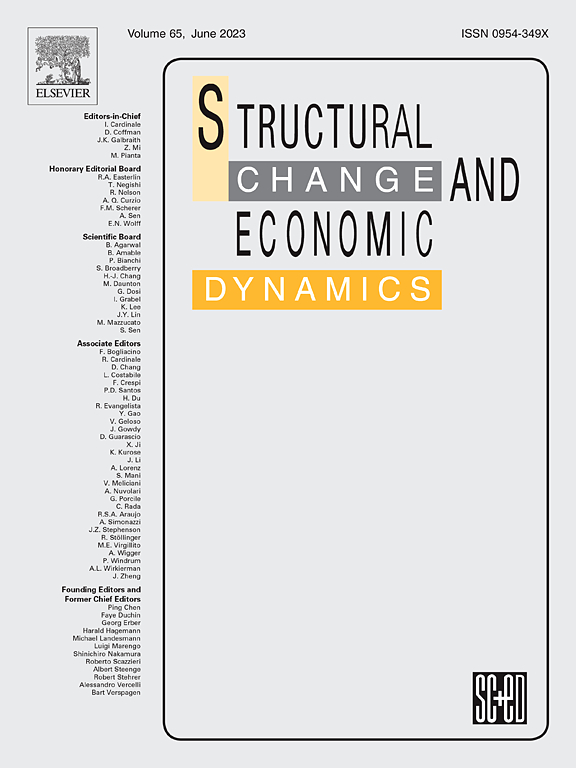低碳城市试点是否促进了碳平等?从区域公平的角度来看
IF 5
2区 经济学
Q1 ECONOMICS
引用次数: 0
摘要
低碳城市试点政策是中国减少碳排放、促进可持续发展战略的核心。本研究引入了碳平等的双重框架方法,区分了经济和生态维度。采用差异中差异(DID)方法,该分析涵盖了2006年至2019年中国地级市。结果表明,LCCP显著提高了经济碳平等和生态碳平等,分别提高了9.2%和8.4%。机制分析认为技术创新、能源消耗和可再生能源是关键的调节因素,符合波特假设。绿色专利和可再生能源增强了LCCP在固碳、经济增长和减排方面的作用。高能耗限制了该政策的效果,但LCCP提高了能源效率,特别是在能源密集型城市。异质性分析表明,经济发达城市和东部地区的影响更大。这项研究为LCCP如何在经济和生态背景下促进区域公平提供了有价值的见解。本文章由计算机程序翻译,如有差异,请以英文原文为准。
Do low-carbon city pilots promote carbon equality? From the perspective of regional fairness
The Low-Carbon City Pilot (LCCP) policy is central to China's strategy for reducing carbon emissions and promoting sustainable development. This study introduces a dual-framework approach to carbon equality, distinguishing between economic and ecological dimensions. Using a difference-in-differences (DID) methodology, the analysis covers prefecture-level cities in China from 2006 to 2019. Results indicate that the LCCP significantly enhanced economic and ecological carbon equality by 9.2 % and 8.4 %, respectively. Mechanism analysis identifies technological innovation, energy consumption, and renewable energy as key moderating factors, in line with the Porter hypothesis. Green patents and renewable energy enhance the LCCP's effects on carbon sequestration, economic growth, and emissions reduction. High energy consumption limits the policy's impact, but the LCCP improves energy efficiency, especially in energy-intensive cities. Heterogeneity analysis reveals stronger effects in economically developed cities and eastern China. This study offers valuable insights into how LCCP can promote regional fairness across economic and ecological contexts.
求助全文
通过发布文献求助,成功后即可免费获取论文全文。
去求助
来源期刊

Structural Change and Economic Dynamics
ECONOMICS-
CiteScore
9.60
自引率
4.90%
发文量
159
期刊介绍:
Structural Change and Economic Dynamics publishes articles about theoretical, applied and methodological aspects of structural change in economic systems. The journal publishes work analysing dynamics and structural breaks in economic, technological, behavioural and institutional patterns.
 求助内容:
求助内容: 应助结果提醒方式:
应助结果提醒方式:


